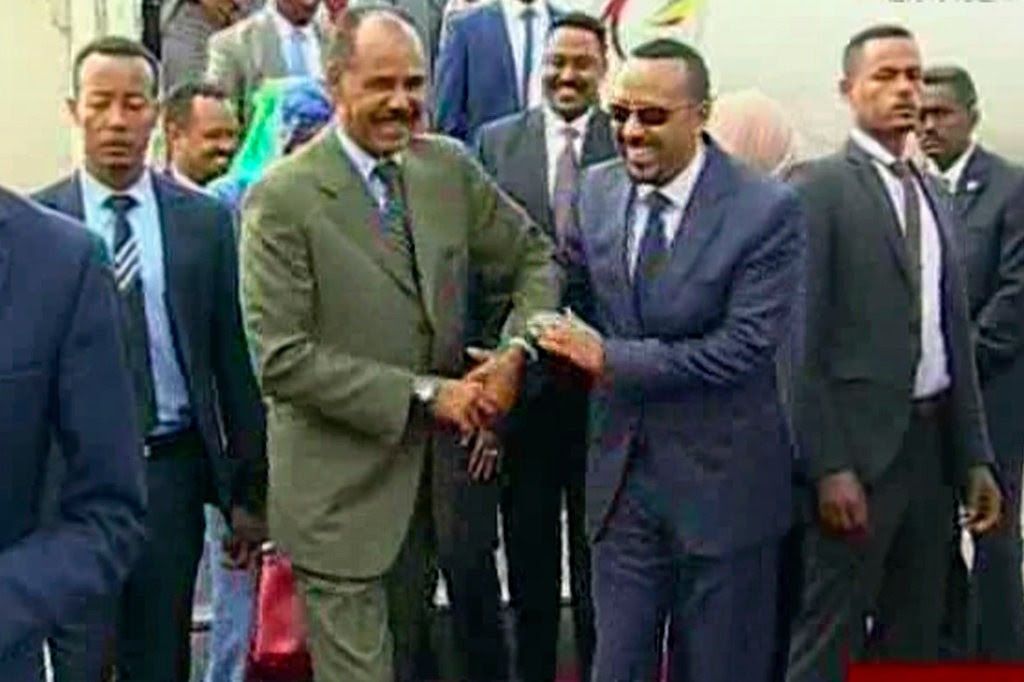July 10, 2018
On Sunday, the leaders of Ethiopia and Eritrea built a bridge of love across a long-disputed border. That’s not us getting mushy in the mid-summer heat – that’s a direct quote from Ethiopian Prime Minister Abiy Ahmed, who has agreed with his Eritrean counterpart Isaias Afwerki to finally settle a late-1990s conflict that killed 80,000 people, displaced half a million more, and fueled destabilizing proxy fights between the countries elsewhere in East Africa ever since.
The peace is largely the initiative of the youthful Mr. Abiy – a former intelligence officer who, since taking power earlier this spring, has made waves by relaxing political controls, pledging economic reforms, and promising a more inclusive government. Peace with Eritrea would free up economic resources and open up greater avenues for development, not least by enabling landlocked Ethiopia to regain access to the Red Sea via Eritrean ports.
For Eritrea, peace offers a chance to emerge from the ruthless militarization and economic isolation that have made it one of the world’s most repressive regimes, driving hundreds of thousands of its people northward to Europe in search of better opportunities in recent years.
To be sure, plenty of challenges remain – for one thing, Ethiopian troops still need to leave border areas that they have occupied in contravention of UN findings, and thorny questions of territorial and population exchanges also remain. It’s also unclear whether Eritrea’s Afwerki can ease tensions without losing control over a system that has been shaped by more than two decades of war-footing.
But in a world where borders and walls are the thing these days, a bridge of love isn’t a bridge too far, is it?
More For You
Bad Bunny during the Super Bowl LX halftime show press conference at Moscone Center.
Kirby Lee-Imagn Images
100 million: The number of people expected to watch the Super Bowl halftime performance with Bad Bunny, the Puerto Rican superstar and newly minted Album of the Year winner at the Grammys.
Most Popular
Think you know what's going on around the world? Here's your chance to prove it.
- YouTube
An imminent US airstrike on iran is not only possible, it's probable.
Americans are moving less — and renting more. Cooling migration and rising vacancy rates, especially across the Sunbelt, have flattened rent growth and given renters new leverage. For many lower-income households, that relief is beginning to show up in discretionary spending. Explore what's changing in US housing by subscribing to Bank of America Institute.
© 2025 GZERO Media. All Rights Reserved | A Eurasia Group media company.
